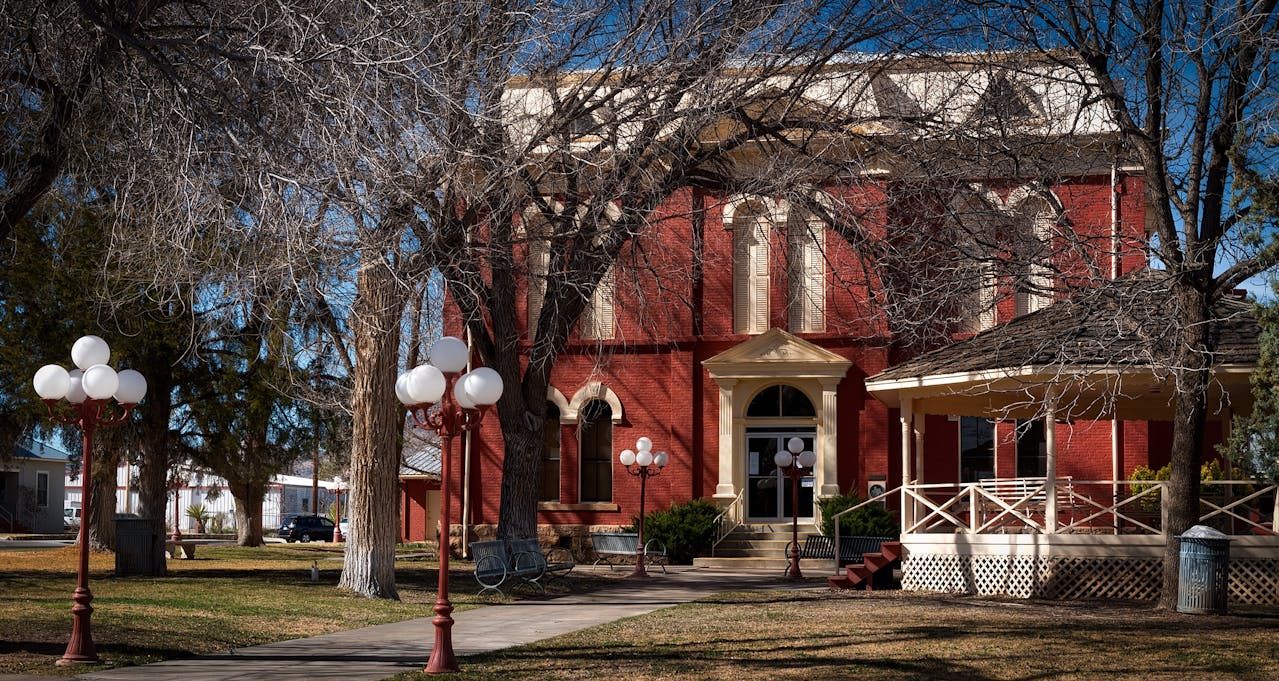What is Baylor University Medical Center known for?
Baylor University Medical Center (BUMC) in Dallas is renowned for its comprehensive healthcare services, including advanced medical treatments and research. It is especially known for its expertise in cardiovascular care, oncology, organ transplantation, and neurology. As a leading academic medical center, BUMC is also recognized for its teaching hospital status, providing cutting-edge medical education and research. The hospital’s dedication to specialized care for seniors, including geriatric medicine, memory care, and orthopedic services, makes it a leader in addressing the complex healthcare needs of older adults in Texas and beyond.

Introduction
Baylor University Medical Center (BUMC) in Dallas, Texas, has a long-standing history of providing high-quality healthcare services, with a particular emphasis on senior care. As the population of older adults in the United States continues to grow, driven by the aging baby boomer generation, healthcare institutions like BUMC have adapted to meet the increasing demands for specialized care tailored to seniors. This essay will explore BUMC’s comprehensive approach to senior care, covering its history, range of services, specific programs, facilities, and its commitment to addressing the unique healthcare needs of older adults.
1. History and Background of Baylor University Medical Center
Baylor University Medical Center is one of the flagship hospitals in the Baylor Scott & White Health system, which is the largest not-for-profit healthcare system in Texas. BUMC was founded in 1903 and has since become a nationally recognized academic medical center, offering a wide range of specialty services, including cardiovascular care, oncology, transplant services, and emergency medicine.
As a teaching hospital, BUMC has a strong focus on research and medical education. This is especially important when it comes to senior care, as the medical field continues to advance in its understanding of aging and related diseases. The hospital’s dedication to research allows it to implement cutting-edge treatments and approaches to healthcare for the elderly.
2. The Growing Need for Senior Care
The United States, and Texas in particular, is witnessing a significant demographic shift. According to the U.S. Census Bureau, by 2030, all baby boomers will be older than 65, making one in every five U.S. residents of retirement age. Texas is home to one of the largest populations of seniors in the country, and as this population grows, so too does the need for specialized care.
Aging adults face unique health challenges, including chronic diseases like diabetes, hypertension, heart disease, arthritis, and Alzheimer’s disease. Furthermore, seniors often require coordinated care from various specialists, rehabilitation services, and support for activities of daily living. Recognizing these challenges, Baylor University Medical Center has developed an integrated, multidisciplinary approach to senior care that addresses both the physical and mental health of older patients.
3. Senior-Focused Services at BUMC
Baylor University Medical Center offers a broad array of services that cater specifically to seniors. These services are designed to address the complex healthcare needs of older adults while promoting wellness, independence, and quality of life. Some of the key areas of focus include:
3.1 Geriatric Medicine
The Geriatric Medicine program at BUMC provides comprehensive care for older adults, focusing on managing chronic conditions, preventing health deterioration, and improving overall well-being. The program is staffed by geriatricians who are specially trained to understand the aging process and its impact on the body. Geriatricians work closely with other healthcare professionals, such as nurses, social workers, and physical therapists, to create individualized care plans for each patient.
In addition to treating common medical conditions like diabetes and cardiovascular diseases, geriatricians at BUMC emphasize the importance of managing medications carefully, as older adults are more susceptible to adverse drug reactions. The program also includes routine screenings for cognitive impairment, fall risk assessments, and mental health evaluations, recognizing that aging impacts every aspect of health.
3.2 Memory Care and Dementia Support
Alzheimer’s disease and other forms of dementia are significant concerns for aging populations. BUMC has established specialized memory care services to support individuals experiencing cognitive decline. The center offers diagnostic assessments for memory disorders, along with personalized care plans that may involve medication management, therapy, and support services for families.
An important component of memory care at BUMC is its support network for caregivers. Caring for a loved one with dementia can be emotionally and physically exhausting, and BUMC provides resources like counseling, support groups, and respite care to ensure that caregivers also receive the help they need.
3.3 Cardiovascular Care for Seniors
Heart disease remains the leading cause of death among older adults, and BUMC has long been a leader in cardiovascular care. The hospital offers specialized services for the prevention, diagnosis, and treatment of heart disease in seniors. This includes non-invasive tests, advanced surgical procedures, and ongoing management of chronic conditions such as heart failure, arrhythmias, and coronary artery disease.
Baylor’s team of cardiologists, cardiovascular surgeons, and specialized nurses work together to create individualized care plans for seniors. Given the delicate nature of senior patients, treatments are often focused on minimally invasive procedures that reduce recovery time and physical strain on the body. BUMC also provides robust cardiac rehabilitation services that help older adults regain strength and improve their overall heart health after surgeries or cardiac events.
3.4 Oncology Care for Seniors
Cancer rates increase significantly with age, and BUMC has built a strong oncology program to address the needs of older adults with cancer. The Baylor Scott & White Charles A. Sammons Cancer Center, located on the BUMC campus, offers state-of-the-art diagnostic tools, surgical interventions, radiation therapy, and chemotherapy treatments.
For senior patients, oncology care requires a delicate balance. Older adults may not tolerate certain aggressive treatments as well as younger patients, so BUMC’s oncology team emphasizes personalized treatment plans that take into account the patient’s overall health, mobility, and quality of life. Palliative care and hospice services are also available to support patients in managing pain and symptoms during the advanced stages of cancer.
3.5 Orthopedics and Joint Replacement
Bone health is another critical area for seniors. As people age, they become more susceptible to osteoporosis, fractures, and joint problems. Baylor University Medical Center’s orthopedic team specializes in treating musculoskeletal conditions common among seniors, including arthritis and joint degeneration.
One of the most common procedures performed on senior patients at BUMC is joint replacement surgery, particularly hip and knee replacements. These surgeries are life-changing for many seniors, as they can significantly reduce pain and improve mobility. BUMC’s orthopedic surgeons use the latest techniques in joint replacement, including minimally invasive approaches that allow for quicker recovery times.
The hospital also offers comprehensive rehabilitation services for seniors recovering from orthopedic surgeries. This includes physical therapy to help patients regain strength and flexibility, as well as occupational therapy to ensure they can safely perform daily activities.
4. Senior Care Facilities at BUMC
BUMC is committed to providing a senior-friendly environment that enhances the patient experience. The hospital has made several adaptations to its facilities to accommodate the needs of older adults. These include:
- Accessible Design: BUMC’s buildings are designed with accessibility in mind. This includes wide hallways and doorways, handrails, ramps, and elevators to ensure seniors can navigate the hospital with ease.
- Senior-Focused Amenities: The hospital offers specialized amenities such as comfortable seating in waiting areas, well-lit hallways, and private patient rooms equipped with features that cater to seniors, such as adjustable beds and easy-to-use communication systems.
- Supportive Services: In addition to medical care, BUMC provides supportive services such as transportation assistance, social services, and spiritual care to help seniors and their families manage the logistics of hospitalization and recovery.
5. Preventive Care and Wellness Programs
In addition to treating acute and chronic conditions, BUMC places a strong emphasis on preventive care for seniors. The hospital offers wellness programs designed to promote healthy aging and prevent the onset of diseases. These programs include health screenings, immunizations, and educational seminars on topics like nutrition, exercise, and disease prevention.
One example is BUMC’s fall prevention program, which helps seniors reduce their risk of falls-a leading cause of injury among older adults. The program offers balance assessments, physical therapy, and home safety evaluations to ensure seniors can maintain their independence while minimizing fall risk.
6. Palliative and Hospice Care
As part of its commitment to providing compassionate care for seniors at every stage of life, Baylor University Medical Center offers both palliative care and hospice services. Palliative care focuses on improving the quality of life for patients with serious illnesses by managing symptoms such as pain, nausea, and shortness of breath. Hospice care, on the other hand, is designed for patients who are nearing the end of life, providing comfort and support for both the patient and their family.
BUMC’s palliative and hospice care teams work closely with patients to ensure their physical, emotional, and spiritual needs are met. These services are especially important for seniors who may be dealing with multiple health challenges and are seeking relief from symptoms rather than curative treatments.
7. Research and Innovation in Senior Care
Baylor University Medical Center is at the forefront of research into aging and senior care. The hospital actively participates in clinical trials and research studies aimed at improving healthcare outcomes for older adults. This includes research on conditions that disproportionately affect seniors, such as Alzheimer’s disease, osteoporosis, and cardiovascular disease.
Retirement Communities Near Me

Retirement Community In Texas
Best retirement communities and senior living options in Texas, and embark on your journey towards a fulfilling and enriching senior lifestyle today.

Oakmont Village
The Retirement Community Oakmont Village is a premier retirement community nestled in the picturesque Sonoma County, California.

What is the Average Cost of Senior Living in Texas?
What Is The Average Monthly Cost Of A Nursing Home In Texas? The average monthly cost of a nursing home in Texas is approximately

Robson Ranch Texas
The Retirement Community Robson Ranch Texas is a premier active adult community located in Denton, Texas.





